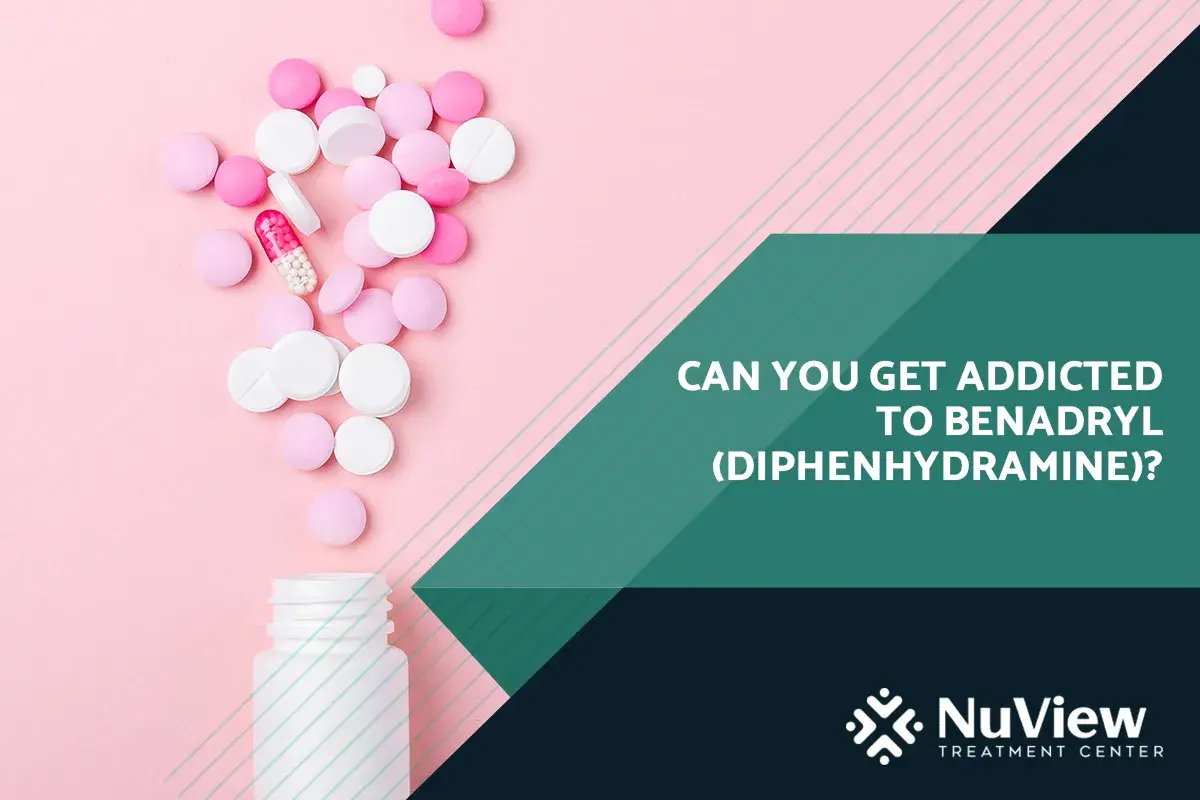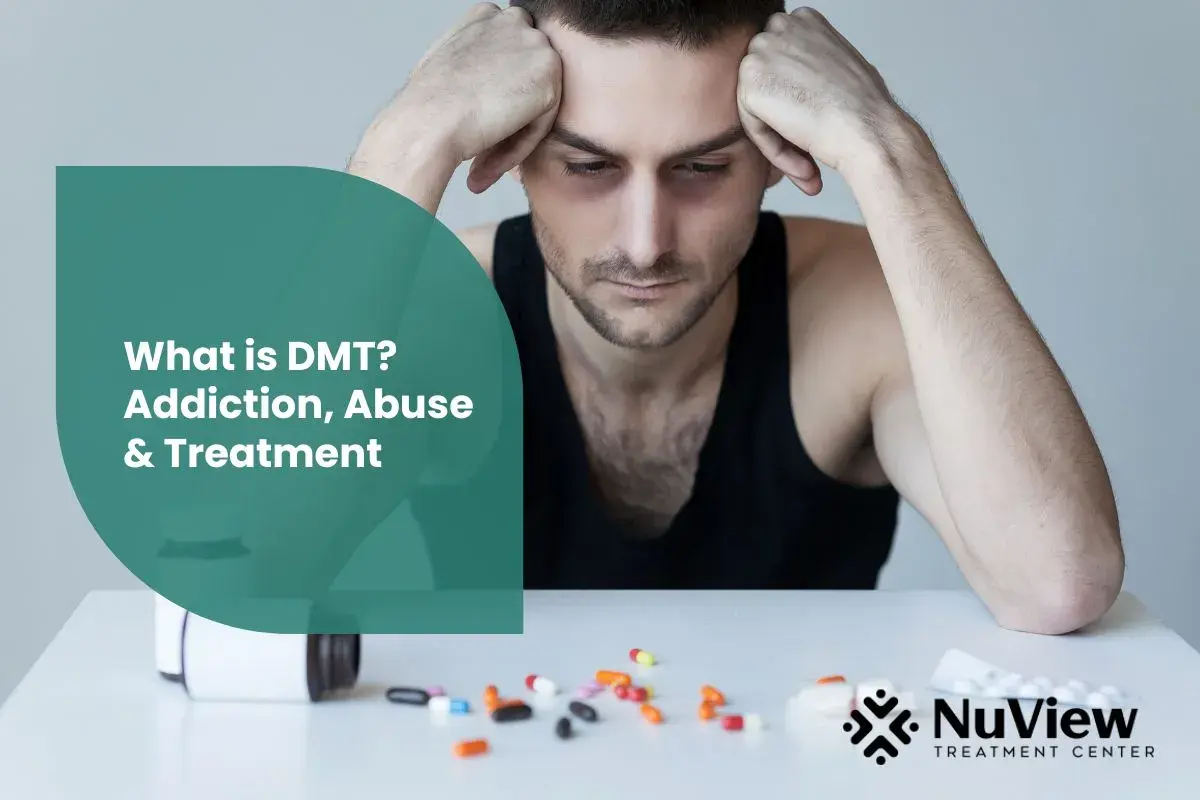Benadryl, a commonly recognized brand name for the drug diphenhydramine, is a widely used over-the-counter antihistamine medication. Benadryl is primarily utilized to alleviate symptoms such as sneezing, itching, watery eyes, and a runny nose caused by allergies, as well as to manage symptoms of the common cold.
However, beyond its intended medical applications, concerns have arisen regarding the potential for Benadryl misuse and addiction.
A study published in the journal JAMA Internal Medicine reported an increase in hospitalizations due to diphenhydramine misuse between 2005 and 2015. The study highlighted cases of intentional self-poisoning, suggesting a concerning trend in misuse and its potential consequences.
Poison control centers in various countries have reported cases of diphenhydramine misuse. In some instances, individuals have consumed excessively high doses in attempts to achieve hallucinogenic effects, leading to serious health complications.
According to the National Institute on Drug Abuse (NIDA), over-the-counter medications like Benadryl containing diphenhydramine can be misused for their sedative effects, with an increase in emergency room visits attributed to such misuse.
Can You Get Addicted to Benadryl (Diphenhydramine)?
Yes, Benadryl (diphenhydramine) has the potential to be addictive when misused. While it is primarily intended for managing allergies and allergic reactions, its sedative effects have led to off-label use as a sleep aid or for recreational purposes.
Studies and anecdotal reports have highlighted cases where individuals intentionally take higher doses of Benadryl to experience its sedative or hallucinogenic effects. The Drug Enforcement Administration (DEA) has also noted an increase in reports of Benadryl abuse.
This misuse can lead to a range of adverse health effects, including cognitive impairment, heart palpitations, and even serious medical emergencies. While Benadryl can be an effective antihistamine when used as directed, its misuse for recreational or sedative purposes can lead to addiction.
What Are the Signs and Symptoms of Benadryl Addiction?
Recognizing the signs and symptoms of Benadryl (diphenhydramine) addiction is crucial in addressing this concern. Misuse of Benadryl can lead to addiction, with potential indicators including:
- Developing a tolerance to Benadryl.
- Using Benadryl in higher doses than recommended.
- Experiencing withdrawal symptoms such as tremors, anxiety, irritability, and muscle aches when attempting to stop using Benadryl.
- Having difficulties with coordination and cognition.
- Trembling.
- The inability to fall asleep.
- Anxiety and confusion when skipping a dose.
- Dependence on Benadryl to function normally.
- Poor coordination, body weakness, and erectile dysfunction.
- Kidney and liver damage and increased heart rate.
- Feeling the need to take Benadryl to achieve the high.
- Finding it difficult to concentrate and focus on simple tasks.
Get Started With Nuview Treatment Center
Our dedicated professional staff is here to guide you or your loved one on the journey to lasting recovery, offering support every step of the way.
Can You Overdose on Benadryl?
Yes, overdosing on Benadryl is possible and can lead to serious health risks. Taking excessively high doses of Benadryl can result in adverse effects and even life-threatening complications.
Research indicates that high doses of Benadryl can lead to symptoms such as confusion, blurred vision, difficulty urinating, rapid heartbeat, and seizures. In severe cases, an overdose can cause delirium, hallucinations, and respiratory depression.
How Benadryl Interact with Alcohol and Other Substances?
When it comes to mixing Benadryl with alcohol, it's generally considered dangerous and not recommended. Benadryl (diphenhydramine) can induce drowsiness, and when combined with alcohol, this effect can be exacerbated.
Both substances act as central nervous system (CNS) depressants, slowing down CNS activity. Using them simultaneously can lead to excessive sedation and hinder physical and mental tasks that require alertness. This combination can also heighten the risk of dehydration, as both substances have dehydrating effects on the body.
Additionally, Benadryl's potential interactions with other medications can be compounded by alcohol, intensifying the likelihood of adverse effects. Some products like cough syrup and laxatives contain alcohol, further complicating the interaction with Benadryl and amplifying potential side effects.
Misusing Benadryl, particularly by consuming large amounts or intentionally mixing it with alcohol, can result in perilous consequences, even fatal ones. To avoid these risks and potential interactions, refraining from combining Benadryl with alcohol is vital. If any doubts or queries arise about this combination, consulting a healthcare professional is the wisest course of action.
Get Started With Nuview Treatment Center
What Are the Risks of Benadryl Addiction and Abuse?
The misuse and addiction to Benadryl carry significant health risks. Taking the drug in ways other than prescribed or using it to achieve euphoria can result in various adverse effects. Evidence from medical studies and reports underscores the potential risks:
Physical Health Concerns: Abusing Benadryl can lead to physical issues such as blurred vision, dry mouth, constipation, urinary retention, and heart palpitations. Overdosing on Benadryl can cause more severe symptoms, including seizures, delirium, and respiratory depression.
Cognitive Impairment: Excessive use of Benadryl can impair cognitive functions, affecting memory, concentration, and overall mental clarity. These cognitive deficits can hinder daily functioning.
Psychological Effects: Misusing Benadryl can lead to hallucinations, paranoia, and confusion. Prolonged abuse may contribute to the development or exacerbation of mental health disorders.
Addiction and Dependence: Evidence suggests that continued misuse of Benadryl can lead to tolerance, where higher doses are needed to achieve the desired effects. This can result in dependence and addiction, making it difficult to stop using the drug.
Withdrawal Symptoms: Individuals who become dependent on Benadryl may experience withdrawal symptoms when attempting to quit, including insomnia, anxiety, irritability, and nausea.
Risk of Overdose: Taking excessively high doses of Benadryl can lead to overdose, which can be life-threatening. Deliberate misuse in attempts to achieve hallucinations or euphoria increases this risk.
Do I Have a Benadryl Addiction?
If you suspect Benadryl abuse, consider the following questions:
- Do you use diphenhydramine even when symptom-free?
- Do you take it because it's accessible and you crave its effects?
- Do you mix it with other substances?
- Do you hide your usage?
- Are you spending less time with loved ones since starting its use?
- Are you facing challenges at school or work due to its use?
If you believe you're struggling with addiction, seeking help is crucial.
How to Treat Benadryl Addiction?
Addressing addiction alone is challenging. If you've been abusing Benadryl for an extended period, detoxing without medical assistance can be dangerous. Symptoms of withdrawal include difficulty sleeping, restlessness, anxiety, tremors, and nausea. After detox, consider inpatient rehab or an intensive outpatient program (IOP) for further support.
Overcoming Benadryl Addiction at Nuview Treatment Center
If you're struggling with diphenhydramine addiction, NuView Treatment Center in Los Angeles can help. They offer treatment options tailored to individual needs, helping clients address underlying conditions and develop healthy coping mechanisms.
Frequently Asked Questions
Is Benadryl Addictive for Sleep??
Yes, Benadryl can be addictive for sleep. Its sedative effects may lead to psychological dependence and tolerance, causing addiction. Regular use can result in health issues, and seeking addiction treatment is recommended
Can Benadryl Addiction Go Unnoticed for Long Periods?
Yes, Benadryl addiction can often go unnoticed for extended periods, as individuals may downplay or hide their misuse. The gradual development of tolerance and dependence can make detection challenging.
What Are the Short-term and Long-term Consequences of Benadryl Addiction?
Short-term consequences of Benadryl addiction can include cognitive impairment, drowsiness, and increased heart rate. Long-term effects may involve worsening mental health and escalating addiction severity.
Is Benadryl Addictive for Adults?
Yes, Benadryl can be addictive for adults due to its sedative properties. If taken too frequently, people may develop both physical and psychological dependence and may require medical detox.
Is Benadryl Addictive for Babies?
Typically no, Benadryl is not considered addictive for babies. However, parents should always consult a doctor before administering any medication to a baby and be aware that diphenhydramine should not be given to infants under 12 months old.
Can People Have Allergic Reactions to Benadryl?
Yes, people can have allergic reactions to Benadryl. Some common symptoms of an allergic reaction include difficulty breathing, hives, swelling of the face and throat, and skin rash. If any of these occur after taking diphenhydramine, seek medical attention immediately.
What Are Benadryl Abuse Symptoms?
Some symptoms of Benadryl abuse may include drowsiness, confusion, dizziness, nausea, rapid heart rate, and difficulty breathing. Prolonged misuse can lead to more severe side effects and potential addiction.
Does Benadryl Have a Sedative Effect?
Yes, Benadryl does have sedative effects. This is why it is often used to help with sleep issues or as an over-the-counter antihistamine for allergies. However, due to its potential for addiction and abuse, it's advised to take the lowest effective dose for the shortest time.
Can Benadryl be Taken as Needed?
Benadryl can be taken as needed for relief from allergies or insomnia. However, it should not be used regularly to avoid potential dependence. Prolonged exposure to diphenhydramine may lead to physical and psychological dependence.
Does Benadryl Addiction Therapy Require an IOP?
Benadryl addiction therapy may require an intensive outpatient program (IOP), depending on the severity of your addiction and other factors. At NuView Treatment Center, personalized Benadryl addiction treatment plans are offered to meet each individual’s needs.
- Can You Get Addicted to Benadryl (Diphenhydramine)?
- What Are the Signs and Symptoms of Benadryl Addiction?
- Can You Overdose on Benadryl?
- How Benadryl Interact with Alcohol and Other Substances?
- What Are the Risks of Benadryl Addiction and Abuse?
- Do I Have a Benadryl Addiction?
- How to Treat Benadryl Addiction?
- Frequently Asked Questions
- Can You Get Addicted to Benadryl (Diphenhydramine)?
- What Are the Signs and Symptoms of Benadryl Addiction?
- Can You Overdose on Benadryl?
- How Benadryl Interact with Alcohol and Other Substances?
- What Are the Risks of Benadryl Addiction and Abuse?
- Do I Have a Benadryl Addiction?
- How to Treat Benadryl Addiction?
- Frequently Asked Questions
Get Help Today!
Everyone is Welcome Here and We All Have Your Back
Your healing journey deserves a personalized approach. At NuView, we integrate expertise in behavioral therapy, mental health, and substance use treatment to create a customized recovery plan tailored to your unique needs.
Connect with our Admissions Specialists today.







Written By
Dr. Ryan Peterson